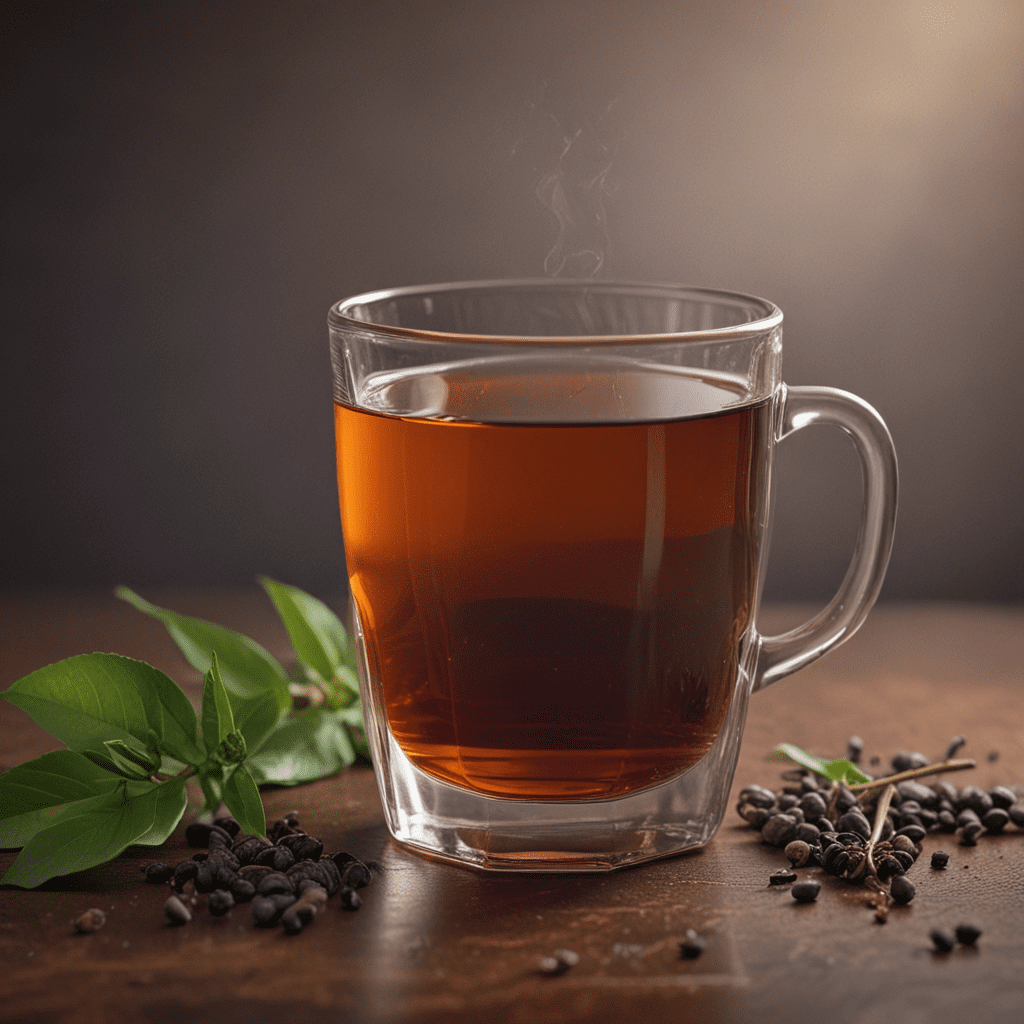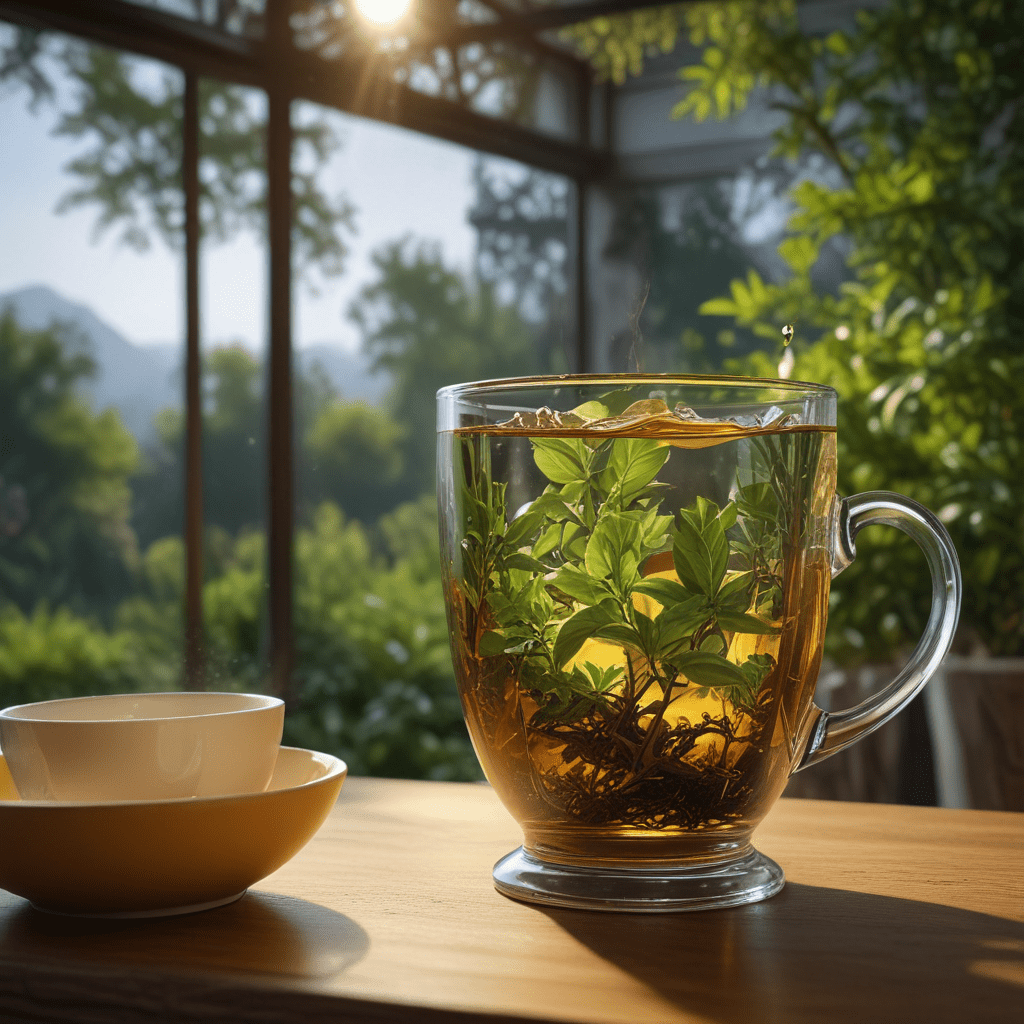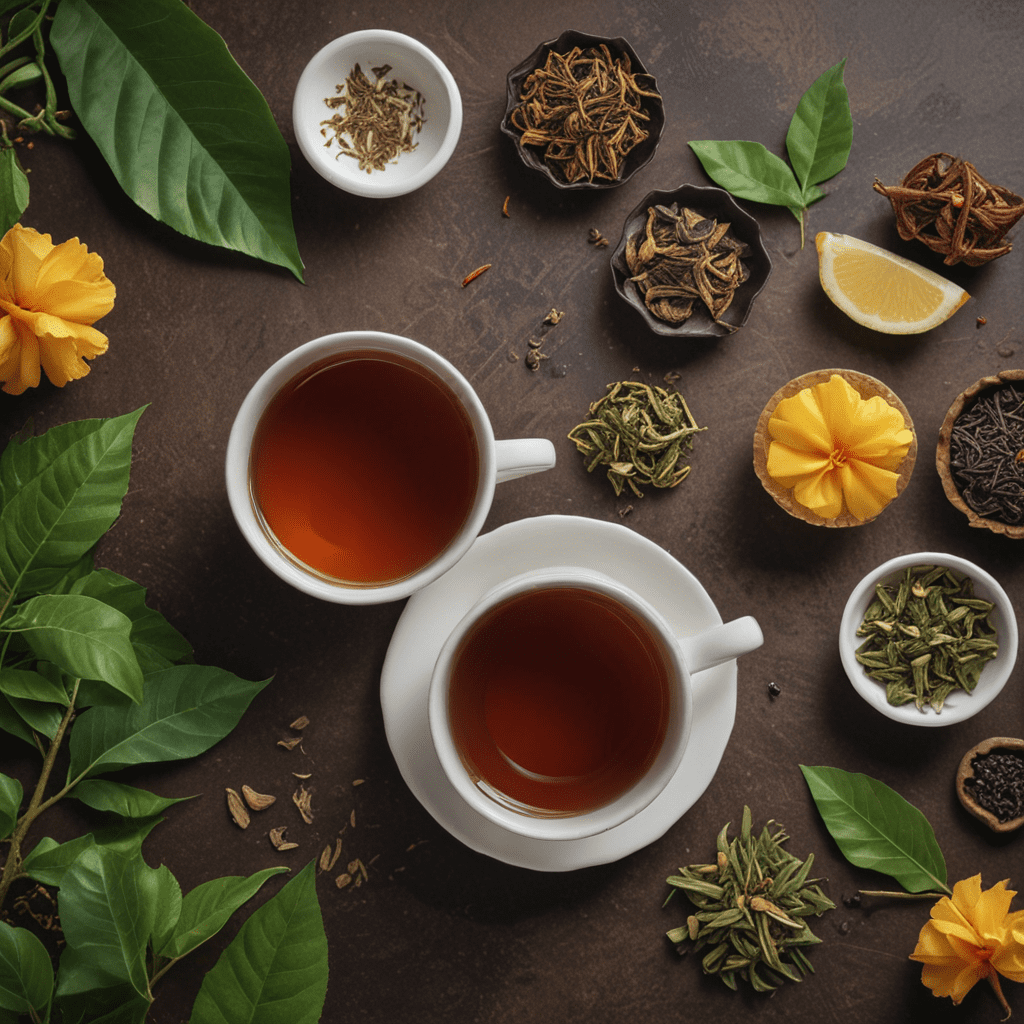Assam Tea: A Taste of Authenticity
Assam tea, a highly esteemed beverage, is a testament to the rich heritage and exceptional craftsmanship of the Brahmaputra Valley. Its distinctive flavor profile, with its robust, malty character, has captured the hearts and palates of tea enthusiasts worldwide.
The Origin Story: A Legacy from the Brahmaputra Valley
Assam tea's origins can be traced back to the lush tea gardens of the Brahmaputra Valley in northeastern India. The valley's unique climate, characterized by abundant rainfall, warm temperatures, and fertile soil, provides the ideal environment for tea cultivation. The first Assam tea plant, discovered in 1823 by a British explorer, is said to be the progenitor of all modern-day Assam tea varieties.
The Tea Gardens of Assam: A Verdant Tapestry
Assam's tea gardens are a verdant tapestry, stretching across rolling hills and sprawling plains. The tea bushes, carefully tended by skilled tea planters, thrive in the region's favorable conditions. The gardens, a symphony of emerald and jade, are a breathtaking sight, and their aromatic fragrance permeates the air.
The Distinct Flavor Profile: Malty, Rich, and Robust
Assam tea is renowned for its robust, full-bodied flavor, often described as malty, rich, and earthy. The strong liquor, with its deep amber hue, exudes a distinct aroma that is both inviting and invigorating. The tea's unique flavor profile is attributed to the specific cultivar used, the Assamica, and the region's unique growing conditions.
The Traditional Preparation: A Ritual of Heritage
Preparing Assam tea is a traditional ritual that has been passed down through generations. The tea is typically brewed using a simple method, allowing the leaves to steep in hot water for several minutes. Milk and sugar are often added to enhance the flavor, creating a comforting and aromatic beverage that is a staple in many Assamese households.
6. The Health Benefits: A Treasure of Antioxidants
Assam tea is not only a culinary delight but also a treasure trove of health benefits. It contains a rich array of antioxidants, including polyphenols and flavonoids, which have been linked to a variety of health-promoting effects. These antioxidants can help protect cells from damage, reducing the risk of chronic diseases such as cancer and cardiovascular ailments.
7. The Cultural Significance: A Symbol of Assamese Pride
Assam tea is deeply intertwined with the cultural fabric of Assam. It is a symbol of Assamese identity and heritage, and is often served at social gatherings and festivals. The tea is a source of pride for the people of Assam, and its popularity extends far beyond the region's borders.
8. The Economic Impact: A Vital Industry for Assam
Assam tea is a major contributor to the economy of Assam. The tea industry provides employment to a large number of people, both directly and indirectly. It is a vital source of revenue for the state government and plays a significant role in the overall economic development of the region.
9. The Sustainable Practices: Preserving Nature's Bounty
Assam tea gardens are committed to sustainable practices that preserve the environment. They employ organic farming methods, minimizing the use of synthetic fertilizers and pesticides. Additionally, they implement water conservation techniques and promote biodiversity by planting shade trees that provide habitats for local wildlife.
10. Assam Tea Today: Embracing Innovation and Growth
While Assam tea is rooted in tradition, the industry is constantly evolving to meet the changing demands of the market. Tea manufacturers are experimenting with new blends and flavors, catering to diverse consumer preferences. Research and development efforts are also underway to improve cultivation techniques and enhance the quality of the tea.
FAQs
Q: What is the best way to brew Assam tea?
A: To fully appreciate the flavor of Assam tea, use freshly drawn water and heat it to around 195-205°F (90-96°C). Steep the tea leaves for 3-5 minutes, depending on your desired strength.
Q: What are the different grades of Assam tea?
A: The grades of Assam tea vary based on the size and quality of the leaves. The higher the grade, the smaller the leaves and the better the quality. The most common grades are BOP (Broken Orange Pekoe), FOP (Flowery Orange Pekoe), and TGFOP (Tippy Golden Flowery Orange Pekoe).
Q: Can Assam tea be consumed without milk?
A: Yes, Assam tea can be enjoyed both with and without milk. Adding milk enhances the tea's richness and creaminess, while drinking it black allows for a full appreciation of its bold flavor.
Q: What food pairings complement Assam tea?
A: Assam tea's robust flavor pairs well with a variety of foods. It complements savory dishes such as grilled meats, curries, and spicy snacks. It also goes well with sweet pastries and desserts, offering a balancing contrast.
Q: How long can brewed Assam tea be stored?
A: Freshly brewed Assam tea is best consumed within a few hours. If stored in the refrigerator, it can last for up to 24 hours. However, it is recommended to consume the tea as soon as possible to maintain its optimal flavor and freshness.



